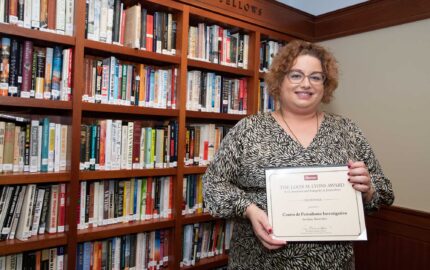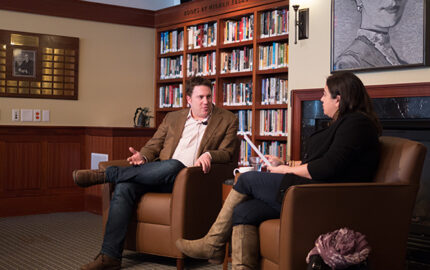Learn about Nieman Fellowships from current and former Nieman Fellows as they discuss the program and application progress in this recorded Google Hangout hosted by the National Association of Black Journalists’ Digital Journalism Taskforce and AllDigitocracy.org on Dec. 8, 2015.
Moderated by Benét Wilson, editor of AllDigitocracy.org, this online discussion featured:
- Nieman curator Ann Marie Lipinski, former editor-in-chief of the Chicago Tribune and a past co-chair of the Pulitzer Prize board
- Dawn Turner, a 2015 Nieman Fellow who most recently has worked as a columnist and specialist reporter for the Chicago Tribune
- 2016 Nieman Fellow Wonbo Woo, a producer for “NBC Nightly News with Lester Holt” who covers politics, breaking news, religion and features
- 2016 Nieman Fellow Mónica Guzmán, who works as a technology and media columnist for GeekWire, The Daily Beast and Columbia Journalism Review
The deadline for U.S. citizens applying to receive a fellowship in the 2016-2017 academic year is Jan. 31, 2016.


